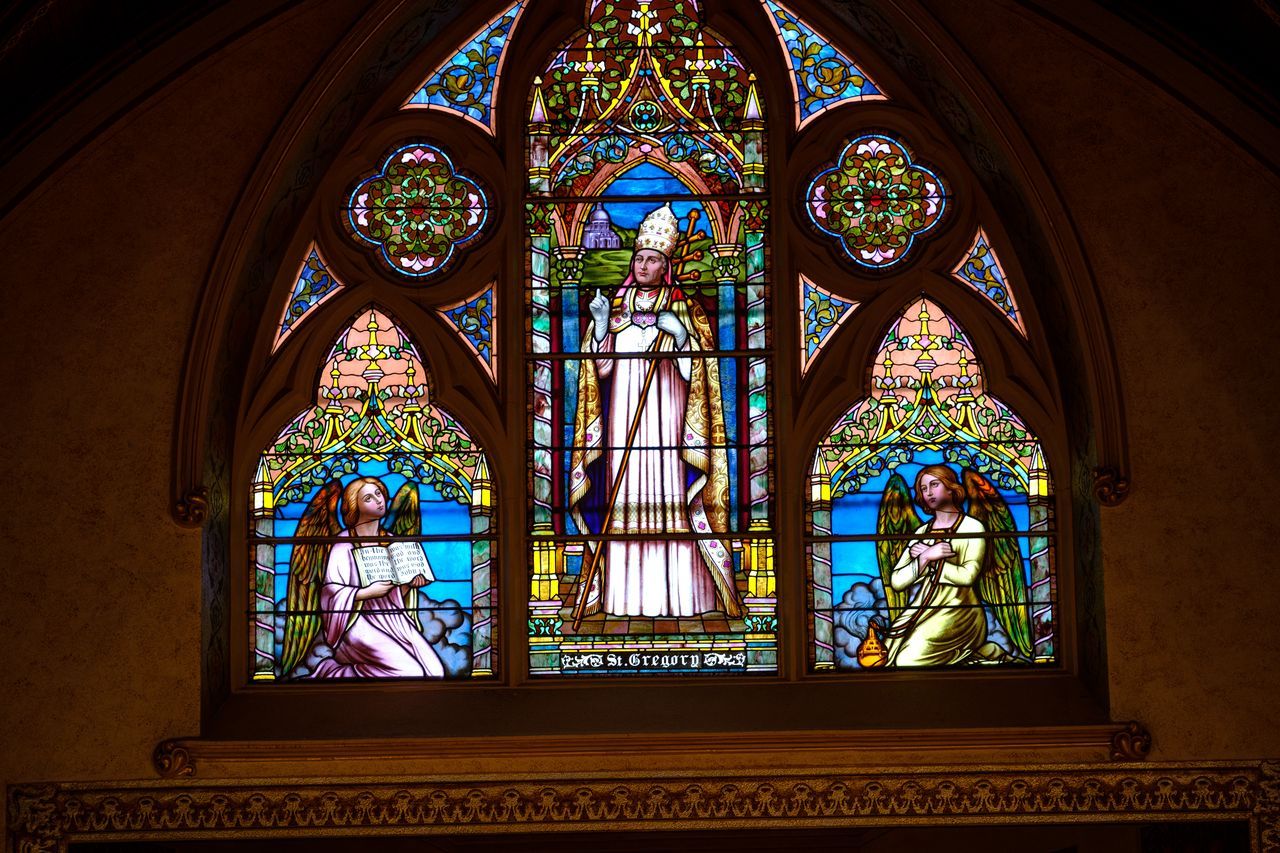Holy Orders
and like living stones be yourselves built into a spiritual house, to be a holy priesthood, to offer spiritual sacrifices acceptable to God through Jesus Christ. (1 Peter 2:5)
Holy Orders is the sacrament by which bishops, priests and deacons are ordained and receive the power and grace to perform their sacred duties. The sacred rite by which orders are conferred is called ordination. The apostles were ordained by Jesus at the Last Supper so that others could share in his priesthood.
Holy Orders, which was instituted by Christ himself, is administered by the laying on of hands by the Bishop, through which the priest is given the power to serve the Church through his preaching, teaching and celebration of the Sacraments.
The Catechism of the Catholic Church on Holy Orders:
1590
St. Paul said to his disciple Timothy: "I remind you to rekindle the gift of God that is within you through the laying on of my hands" (2 Tim 1:6), and "If any one aspires to the office of bishop, he desires a noble task." (1 Tim 3:1) To Titus he said: "This is why I left you in Crete, that you amend what was defective, and appoint presbyters in every town, as I directed you" (Titus 1:5).
1591
The whole Church is a priestly people. Through Baptism all the faithful share in the priesthood of Christ. This participation is called the "common priesthood of the faithful." Based on this common priesthood and ordered to its service, there exists another participation in the mission of Christ: the ministry conferred by the sacrament of Holy Orders, where the task is to serve in the name and in the person of Christ the Head in the midst of the community.
1592
The ministerial priesthood differs in essence from the common priesthood of the faithful because it confers a sacred power for the service of the faithful. The ordained ministers exercise their service for the People of God by teaching (munus docendi), divine worship (munus liturgicum) and pastoral governance (munus regendi).
1593
Since the beginning, the ordained ministry has been conferred and exercised in three degrees: that of bishops, that of presbyters, and that of deacons. The ministries conferred by ordination are irreplaceable for the organic structure of the Church: without the bishop, presbyters, and deacons, one cannot speak of the Church (cf. St. Ignatius of Antioch, Ad Trall. 3, 1).
1594
The bishop receives the fullness of the sacrament of Holy Orders, which integrates him into the episcopal college and makes him the visible head of the particular Church entrusted to him. As successors of the apostles and members of the college, the bishops share in the apostolic responsibility and mission of the whole Church under the authority of the Pope, successor of St. Peter.
1595
Priests are united with the bishops in sacerdotal dignity and at the same time depend on them in the exercise of their pastoral functions; they are called to be the bishops' prudent co-workers. They form around their bishop the presbyterium which bears responsibility with him for the particular Church. They receive from the bishop the charge of a parish community or a determinate ecclesial office.
1596
Deacons are ministers ordained for tasks of service of the Church; they do not receive the ministerial priesthood, but ordination confers on them important functions in the ministry of the word, divine worship, pastoral governance, and the service of charity, tasks which they must carry out under the pastoral authority of their bishop.
1597
The sacrament of Holy Orders is conferred by the laying on of hands followed by a solemn prayer of consecration asking God to grant the ordained the graces of the Holy Spirit required for his ministry. Ordination imprints an indelible sacramental character.
1598
The Church confers the sacrament of Holy Orders only on baptized men (viri), whose suitability for the exercise of the ministry has been duly recognized. Church authority alone has the responsibility and right to call someone to receive the sacrament of Holy Orders.
1599
In the Latin Church the sacrament of Holy Orders for the presbyterate is normally conferred only on candidates who are ready to embrace celibacy freely and who publicly manifest their intention of staying celibate for the love of God's kingdom and the service of men.
1600
It is bishops who confer the sacrament of Holy Orders in the three degrees.
Sacraments of Christian Initiation – Baptism, Confirmation, and Eucharist
“The sacraments of Christian initiation – Baptism, Confirmation and the Eucharist – lay the foundations of every Christian life.” – Catechism of the Catholic Church, 1212
Sacraments of Healing – Reconciliation and Anointing of the Sick
“The Lord Jesus Christ, physicians of our souls and bodies, who forgave the sins of the paralytic and restored him to bodily health (Cf. Mk2:1-12), has willed that his Church continue, in the power of the Holy Spirit, his work of healing and salvation, even among her own members. This is the purpose of the two sacraments of healing: the sacrament of Penance and the sacraments of Anointing of the Sick.” – Catechism of the Catholic Church, 1421.
Sacraments at the Service of Communion/Vocation – Marriage and Holy Orders
“Two other sacraments, Holy Orders and Matrimony, are directed towards the salvation of others; if they contribute as well to personal salvation, it is through service to others that they do so. They confer a particular mission in the Church and serve to build up the People of God.” – Catechism of the Catholic Church, 1534







